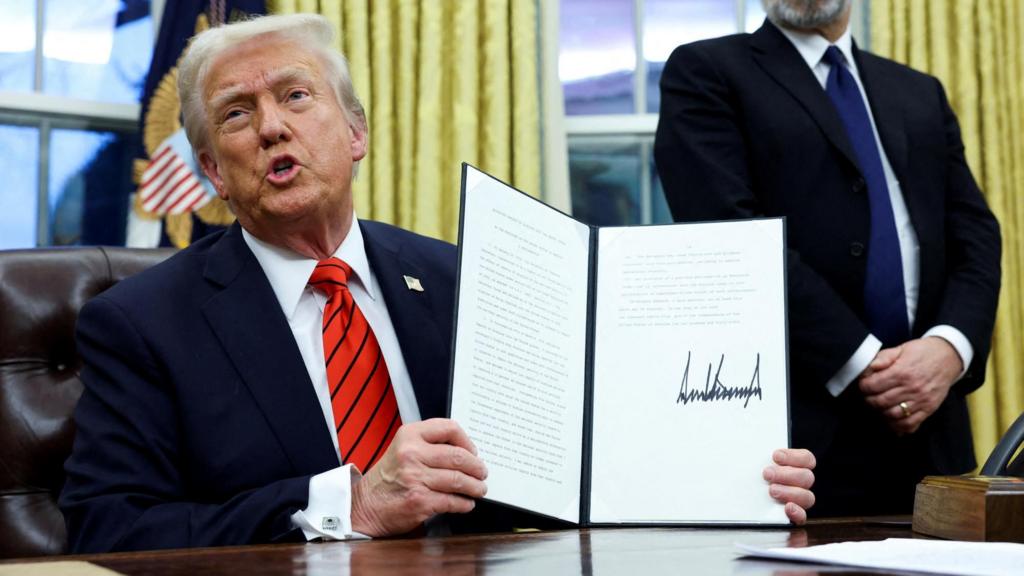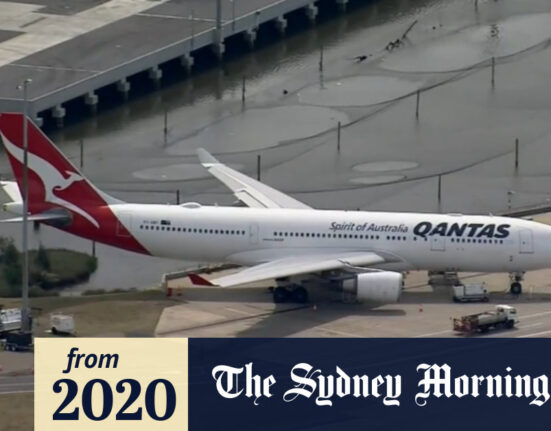Donald Trump, the former president known for his bold and often controversial decisions, found himself in a perplexing situation akin to that of an auctioneer with no interested buyers. In the world of global trade wars, Trump declared an “auction
” by imposing tariffs on various countries, expecting them to comply with his demands. However, as the events unfolded, it became clear that his tactics were not yielding the desired results.
Imagine Trump in his characteristic flamboyant style, trying to sell a property that no one seems eager to purchase. Despite his best efforts to drum up interest through public announcements and grand gestures, such as signing bills and making dramatic tariff declarations in the White House Rose Garden, the response he received was underwhelming.
As one observer noted, “
When the auction looks like failing… he moves to private negotiations… setting a deadline to try to create some pressure.
” This strategy seemed promising at first glance but ultimately fell short of generating substantial interest from potential bidders – in this case, other countries affected by Trump’s trade policies.
The initial excitement surrounding Trump’s tariff announcements quickly dissipated when a 90-day pause was introduced for negotiations with targeted countries. This period was set to expire soon, prompting anticipation about the next steps in this high-stakes economic drama.
In a bid to ramp up pressure on these nations and push for compliance with his demands, Trump resorted to sending out letters outlining punitive tariff rates they would face if they did not meet his criteria. The social media platform Truth Social became an unexpected stage for these diplomatic exchanges as Trump publicly shared these letters addressed to world leaders.
The contents of these letters revealed escalating tariff rates ranging from 25% to 36%, emphasizing Trump’s tough stance on international trade relations. Despite attempts at coercion and brinkmanship tactics, many questioned the effectiveness of such aggressive measures in achieving long-term economic stability and mutual cooperation.
Expert analysis suggests that while trade deficits are a legitimate concern for any nation’s economy, addressing them through unilateral actions like imposing tariffs may have unintended consequences. Critics argue that such measures could lead to increased prices for consumers, higher manufacturing costs for businesses reliant on imports, and disruptions in established supply chains.
Moreover,”
most trade deals take years…to negotiate,
” highlighting the complexity involved in restructuring global economic partnerships. Forcing rapid changes through abrupt policy shifts can strain diplomatic ties and hinder meaningful progress towards sustainable trade agreements beneficial for all parties involved.
Trump’s focus on goods-producing sectors overlooks the significant role played by services in the US economy. With over 75% of GDP attributed to services industries versus less than 25% from goods production sectors, there exists a mismatch between policy priorities and economic realities.
The intricate web of international relations adds another layer of complexity to Trump’s tariff saga. Countries like Japan and South Korea – longstanding allies with deep economic ties to America – found themselves caught in the crossfire of escalating trade tensions. These nations’ strategic importance in balancing power dynamics within Asia Pacific further complicates their delicate dance between honoring alliances and safeguarding their own interests.
As tensions simmered and deadlines loomed large on both sides of these negotiations,”
the Art of Deal
” seemed elusive amidst conflicting objectives and mounting pressures from all fronts. The looming threat of retaliatory tariffs only served to escalate an already precarious situation where mutual understanding seemed increasingly out of reach.
In conclusion,”
trade wars are mutually destructive,
” warned experts familiar with historical precedents where such conflicts led to negative outcomes for all parties involved.”
America’s self-induced isolation” loomed ominously as repercussions from failed negotiations echoed across global markets.
Trump’s ambitious plans had inadvertently triggered a chain reaction that threatened not only economic stability but also strained diplomatic relationships vital for fostering international cooperation.”With ‘friends’ like this…[it] would be excited by America’s self-induced isolation,” portraying a grim reality where misplaced strategies could alienate longstanding allies while emboldening potential adversaries keen on exploiting divisions within Western alliances.
In hindsight,”Trump’s Trade Tariffs: The Saga of Unsuccessful Auctioneering” serves as a cautionary tale illustrating how brash decision-making devoid of nuanced understanding can have far-reaching consequences impacting not just economies but geopolitical landscapes worldwide.







Leave feedback about this